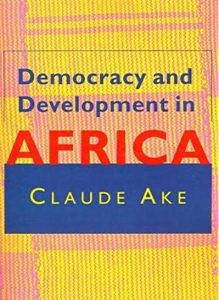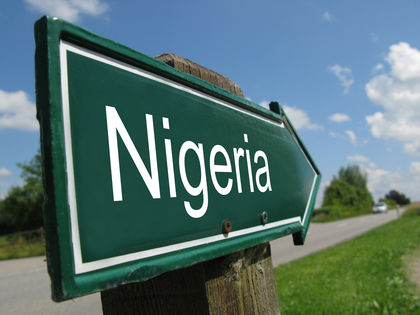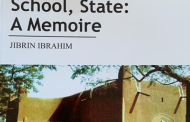By Ambassador Usman Sarki
The ideas of civil society or civic humanism as earlier proposed by Niccolo Machiavelli, James Harrington, John Locke, Adam Ferguson, Baron de Montesquieu, David Hume and others, were systematised by the great English historian Edward Gibbon, in his monumental and seminal work, The History of the Decline and Fall of the Roman Empire. Therein, Gibbon expounded on the idea of civil society and contrasted it with the various stages of human societal evolution, namely from savagery through barbarism to the attainment of sophisticated civilization that is profusely infused with civil social functions and attributes.
While some space may be allowed for sentimental attachment to the different epochs of human societal evolution, it would be an unwarranted transgression and luxury to do so in connection with the present state of affairs in which Nigeria has found herself. A precise, completely detached and clinical appraisal of her present conditions is needed in order to understand the quagmire into which Nigeria has fallen, and how better to extricate her from her pitiful situation.
 The past twenty or so years in her history cannot by any stretch of imagination be glamourised as heroic or even romantically exhilarating to our sense of fulfillment or progress. On the contrary, pondering over Nigeria’s fate during this period leaves us with a sense of despondency and melancholic introspection about her underachievement as well as the wasted opportunities for greatness that she could have captured from the fleeting progress of time.
The past twenty or so years in her history cannot by any stretch of imagination be glamourised as heroic or even romantically exhilarating to our sense of fulfillment or progress. On the contrary, pondering over Nigeria’s fate during this period leaves us with a sense of despondency and melancholic introspection about her underachievement as well as the wasted opportunities for greatness that she could have captured from the fleeting progress of time.
Philosophy, history and perhaps sociology, may be called upon to guide us toward reaching an understanding of the current conditions in Nigeria. The fact that what elsewhere would be a mundane and even uninteresting occasion becomes in Nigeria a matter that could threaten the country’s cohesion and even its very existence. The choice of a presidential candidate in one political party for instance, was made rather smoothly without much bickering. However, on who should become the running mate to that candidate has transcended far beyond logical comprehension to threaten to tear up the country along confessional lines.
Contrasting this lamentable mindset with the near total resignation with which the revelations of the alleged misappropriation of over eighty billion Naira by a highly placed individual in government was received, makes one wonder if Nigerians actually know what they are doing, or have a rational sense of discernment between what is right and what is wrong. Only in conditions of utter ignorance and retrogression can we experience the things that are unfolding in Nigeria nowadays.
This exhibition of retarded tendencies has now become an everyday life and we have resigned ourselves to it to the point where we have no conception anymore of what is best for us and what is not. Wanton impunity and disorderly make-up of affairs have pervaded the system to the extent that it is possible to wonder if the country is sliding into a state of primordial existence previously unknown in her history. Where situations that eat into the vital entrails of society have been allowed to take root and multiply in such profusion and alarming rate, it is logical to wonder if the country has been abandoned to a lamentable fate or whether fatalism and apathy have become the orders of the moment.
Self-esteem and its concomitant factor of enlightened self-interest, are the two vital forces that propel human societies to civilization and greatness. Where they are lacking or are not exhibited in public affairs the society becomes numbed by negative factors and thrown into disequilibrium engendered by selfishness, obduracy and an obstinate indifference to its fate and progress. In Nigeria today, there is a discernible lack of organisation that would lead to betterment of civic governance and an ordered evolution of human society to warrant a comparison with the earlier stages of backwardness that disdained to see good in common sense and the utility of preparing for tomorrow.
In our latter day retrograde environment, we tend to see things from infantile perspectives of fulfillment of immediate needs and irrational urges that we have elevated to fundamental reasons of existence, while we have remarkably neglected those things that could propel us to greatness and higher levels of civilization. This in effect means the inexorable slide into indifferent ways of ordering of arrangements towards creating substantial institutions that could regulate and advance human progress. The difference between order and disorder, and between retrogression and civilization is the existence of civil society in one and its absence in the other.
Civil society here is meant the predetermined way of doing things in society especially in achieving predictable arrangements in governing societies. It essentially means having workable institutions that are built on order, timelines and sustainable ideas about setting up signposts towards future progress. The conditions in Nigeria today leave us with no alternative but to wonder if we are sliding into a state of anarchy directly due to factors that are rearing their heads in the country typified by the disorders entailed in our ways of doing things. This slide into a state of primordial, unintelligent and haphazard existence, is to some extent discernible in the way we are doing things mostly in the form of self-inflicted harm and destruction.
What we have succeeded in doing is to distance ourselves from any connection with civilization both temperamentally and intellectually by undermining civil society and its edifying and invigorating precepts, and in its place we have imbibed a dogmatic attachment to base sentiments that could only draw us back to the primordial state of being that others have left behind them thousands of years ago. We have for instance, manifestly failed to realise or appreciate that civil society cannot be justified or maintained without establishing the right of property and the pursuit of individual human inclinations that are not contrary to recognised and acceptable values and norms of behavior.

An enduring text
To achieve this state of development, society must be built on institutions that are not only functioning smoothly but are also rationally conceived and established. Legal and political institutions therefore, are the forerunners of civil society that also serve to reinforce the idea of sanctity of life and of property. It is when these are realised that the state itself becomes an object of utility and not a subject of expediency and contempt. It is only with this realisation that we can meaningfully speak about establishing political forms and contemplate their different configurations or arrangements. It is also only after this that we can assure ourselves of the significance of rule of law and its application across the social spectrum indiscriminately and dispassionately, and even make it a cornerstone of our civic and political undertakings.
This then makes room for the attainment of civic humanism that we touched upon previously. All the above scenarios must of course be founded on the organisation of the means of production and exchange as well as the overall management of commerce in our societies. These are the foundations of the commonwealth and without them the ability to transit from savagery to barbarism and then to higher levels of civilization would not be possible. The retrogressive aspect of our production and exchange and the truncation of the economy by willful neglect and base corruption are indications of the slide down the hill of civilization that Nigeria is experiencing today.
We may be enamoured by the bright and shiny trinkets and gadgets that are dumped on us by other cultures, but these do not in any way make us a civilised nation or people. On the contrary, they simply reinforce and perpetuate the dependency syndrome to which we have been exposed a century or so ago, and to which we have become habituated through force of custom and want of effort to wean ourselves from such trivialities of life and existence. Our greatest failure as a people and a nation is that we have not learned to appreciate and know how to enjoy liberty and freedom, and exercise them in a manner that is consistent with civilised norms and acts that are obtaining in other lands and climes.
In our case, we exercise them in their abuse rather than in their proper enjoyment. We have succeeded in demonstrating to the rest of the world that we are a people that is incapable of claiming the right to live in civil society and perform those responsibilities that would guarantee freedom and liberty by observing their basic tenets and principles in civilised manners. Instead of actually striving to demonstrate the responsible enjoyment of liberty and freedom without jeopardizing the established forms of governance and legal systems in our country, we have become so intransigent in our ways that we have succeeded in undermining them so deeply that today there is very little left in them to be both credible and worthy of respect and awe.
We have arguably succeeded in the last twenty years or so in entrenching participatory democracy and some aspects of civil government and enfranchisement of persons regardless of their status in the society. However, we have done so at tremendous cost to other salutary prerogatives such as incorruptibility, judicial uprightness, legislative due processes and other scaffoldings of democracy without which that system could not stand. As we retreat from civilization and slide back into anarchy, our ability to efficiently organise production and distribution, to conduct businesses in transparent and regulated environment, to humanize labour and improve conditions in all work places, to pay decent wages and provide good education and affordable healthcare etc., have all been rendered superfluous by our want of a collective sense of mission and direction in which we should go.
Under such circumstances, we have singularity failed to extend to our self and to others the benefits of civil society and the civilizing ideals associated with it. This also explains why no one seems to take the directive principles of state and government in our country as spelt out in chapter two of the Nigerian constitution with any modicum of respect or seriousness. If we are able only to implement these provisions to the exclusion of any other thing else, Nigeria would have truly been set on course towards a higher level of civilization. Alas, after twenty years or more of experimenting in lackadaisical fashion with democracy, even the barest minimum of governance cannot be guaranteed to the Nigerian people.
Until and unless we think deeply about our state of affairs and conditions of being, the benefits of democracy would always remain temporary and transient in our own case, and the prospects of retardation towards the lower rungs of human civilization may become a nightmarish prospect that could fulfill itself under our state of indifference and incomplete awareness of why we are here in this world. While in other lands and climes the major preoccupation of government and the state are the extension of the benefits of civilization to everyone without discrimination through the provision of such things as decent healthcare, education, employment, security of life and property and guarantee of freedoms and liberties, we here in Nigeria are still grappling with whether we should exist or not.
We have not only failed to secure the commonwealth and the basis on which to live together, we have also failed to observe the prerogatives of being citizens as clearly defined and codified in our laws. Until the day we decide to integrate the principles of civic humanism in our daily existence, we would be a nation that is gyrating in hopeless aimlessness that is descending in a linear fashion towards anarchy and a state of oblivion engendered by our own folly and shortsightedness. Bringing back civil society can be the best guarantee of our relevance in this world and towards claiming for ourselves the right of being called civilised.




























